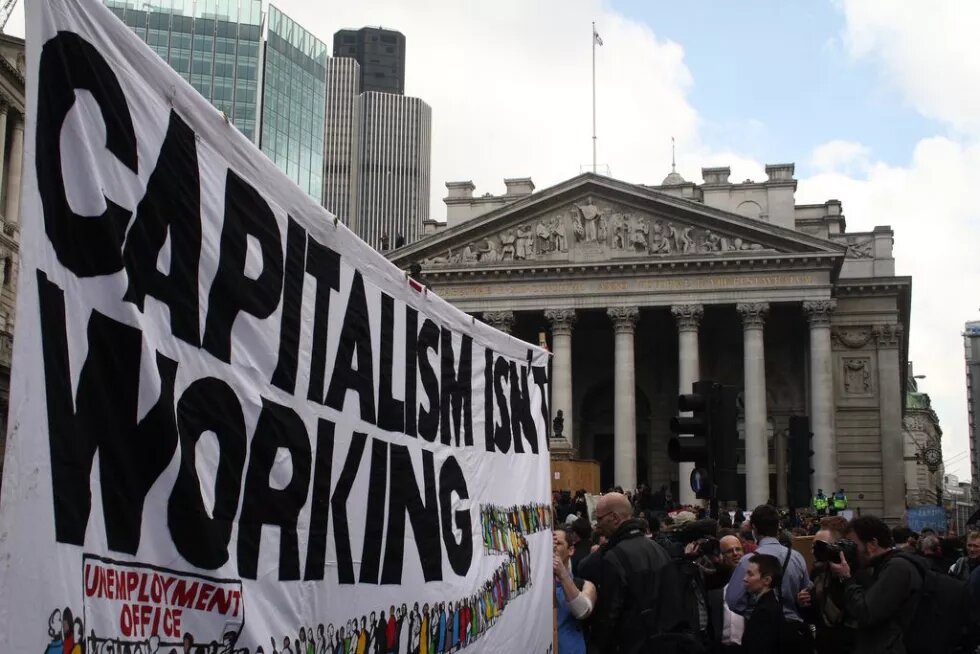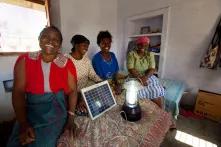
Whose voices are represented in speeches and conferences about women's economic empowerment? As Priti Darooka reports on her experience at this year's W20 Summit in Berlin, there seems to be a disconnect between renowned business conference spaces and grassroots feminist discourses. An editorial from www.medium.com.
In April, I attended the W20 hosted in Berlin by Germany, representing a small but strong cohort of gender and policy experts, the newly formed BRICS Feminist Watch (BFW). I came away a bit disillusioned at the sheer lack of imagination and priority for what this forum had for women of the world: become a business woman and all your economic worries will fall away seemed to be the mantra of what could otherwise have been a critical global forum
The meeting brought a very affluent class of women entrepreneurs or business women to the policy table. Including celebrity heavy weights like Queen Maxima from the Netherlands and the newly minted leader representative of the new world, Ivanka Trump. While there was much booing of her, she nevertheless spoke on behalf of the economic elite that she represented, and announced the setting up of a fund to actively promote women’s entrepreneurship.
My German friends at this meeting were clear that in no way was this a democratically accessible event. Participants were hand picked and selectively invited. Business women and the literally well heeled elite women dominated the meeting floor. Feminists like me were few and far between. Wearing my BFW hat, I distributed our BRICS statement, and tried to get our language in the Communique. There is not much one can do when the main focus is limited.
To be sure, the forum was not a complete wash out: I did get to meet some amazing feminists from BRICS and other South countries. We got to talk about whether we as South feminists should engage at all with such spaces, that have very little space for voices from the margins of civil society. These forums are currently white, elite, and disturbingly Eurocentric. We thought that it is important to form a BRICS Feminist Watch group within W20 so that we can collectively be more visible. And that is how BRICS Feminist Watch (BFW) came about!
Ironically, at this 4-day meeting, the South really did not have a place to be seen or heard. All the visible women came from Europe and North America. More disturbingly, South feminists’ analyses was not a part of the meeting — not in the agenda, not in the side events, not even in conversations. The event looked more like G7 and not as G20. Countries from the global South had very limited presence. The W20 felt like a European meeting. The main thrust was for women to be entrepreneurs, and addressing gender gaps in labour force participation, reducing gender divide in digital economy, and ensure women’s financial inclusion. While these are certainly important issues, they are not the magic bullet that will solve all our problems. There was practically no conversation about poverty, structural causes of inequalities, livelihoods, women farmers, women’s work in the informal economy and so on.
There was much empty rhetoric about unpaid care work and the need for women to balance work and family. For decades, South feminists have been screaming from policy and academic rooftops about the glaring issue of unpaid work in subsistence livelihood and realities of women in informal sector including agriculture. To have these ideas being spewed vacuously from the top down felt not just unreal and hypocritical, but very much a case of reinventing the wheel towards no meaningful end.
As a feminist activist and policy expert navigating diverse spaces in the global south and privileged to be at feminist forums in the global north, I see this as a sad trend. We saw a somewhat similar reality in Delhi recently, during the BRICS Civil meeting — a so-called civil society space totally controlled by the Indian government as the host country. These ‘new’ feminists or ‘business feminists’ talk the language our governments want to hear and the whole push is for conventional economic growth, that we know will continue to leave majority of women behind.
At W20 I felt like a stereotypical angry feminist! We as civil society are ceding precious democratic spaces and opportunities. As we keep complaining about this, the space is being taken over by ‘new’ civil society: the corporate elite, and elite business women. Feminists demanding structural change to replace broken systems are seen as shrill and unreasonable.
It is also important to note that there were at least 2–3 women from each of the South countries. Besides myself, there were three other women from India and we also had Indian Secretary of Ministry of Women and Child Development (WCD) (Government of India) it was equally frustrating for Madam Secretary and she tried to maintain such diplomatic stance which I admire her so much for. I had never met the other three women from India prior to W20.
We did not have any country level discussions in preparation for W20. Yet at the W20 delegation meeting and in voting on Communique, we were voting as a country. Without national consultations, such interventions also make you wonder — who are we representing — really?!
I made many an intervention on behalf of BFW. Angela Merkel, the German Chancellor attended three events in the two days — a clear indication of her commitment to leveraging her presidency this year of G20, to push for women’s issues. She officially and publically accepted the collectively developed Communique on women’s economic empowerment and promised to carry it forward to G20 discussions. Imagine if Merkel uses her power and position to really get behind empowering ALL women!! But that did not happen at this W20. Her push is for women in business.


